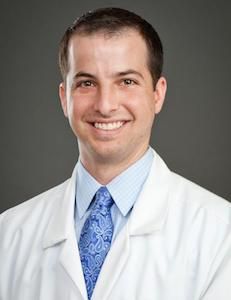HCV Eliminated in Patients Given Kidney Transplants from Infected Donors
Patients who received lifesaving kidney transplants from deceased donors infected with HCV were cured after undergoing antiviral drug therapy.

Patients who received lifesaving kidney transplants from deceased donors infected with hepatitis C virus (HCV) were cured after undergoing antiviral drug therapy, findings from a pilot trial conducted at the University of Pennsylvania show.
The results may expand the strategies for increasing organs available to the more than 97,000 US patients who are awaiting kidney transplants, according to an April 30 news release from Penn Medicine. Currently, at least 500 kidneys are discarded every year because the donors had HCV.
“We started this trial in the hopes that, if successful, we could open up an entirely new pool of donor organs, and effectively transplant hundreds, if not thousands, more patients who are awaiting a lifesaving organ,” said trial co-leader David S. Goldberg, MD, MSCE (photo), and an assistant professor at the university’s Raymond and Ruth Perelman School of Medicine. “If future studies are successful, this may be a viable option for patients who may otherwise never see a transplant.”
Goldberg and colleagues at the Philadelphia-based university began the clinical trial in 2016. They sought to determine the safety and efficacy of transplantation of kidneys from HCV genotype 1—viremic donors into HCV-negative patients, followed by treatment with the direct-acting antiviral (DAA) drug elbasvir–grazoprevir (Zepatier/Merck & Co.)
Ten patients with a median age of 59 received HCV infected kidneys after becoming eligible to participate in the transplantation. The recipients were investigated for signs of the liver-attacking virus 3 days after surgery. All 10 tested positive. Next, they were treated with the standard 12-week course of Zepatier, a recently-approved DAA. All 10 people attained sustained virologic response (SVR), indicating that they were cured, 12 weeks after the end of treatment, according to Penn Medicine, which includes the Perelman School and the University of Pennsylvania Health System.
“Direct-acting antiviral agents, which are associated with high HCV cure rates and manageable side effects, have created the potential to substantially increase the number of kidney transplants by making HCV-infected kidneys available to HCV-negative candidates on the waiting list,” according to the research team.
Following the early positive results, the team was granted an extension that will permit members to transplant and treat an additional 10 patients. They are designing a new clinical trial to study the approach in people who are heart transplant recipients. In the future, they hope to examine the efficacy for liver and lung transplants.
Goldberg led the study with Peter Reese, MD, MSCE, who is an assistant professor of medicine and epidemiology at Penn and chair of the ethics committee for the United Network of Organ Sharing (UNOS). The findings were reported at the 2017 American Transplant Congress in Chicago and in a letter published in the New England Journal of Medicine.
The trial was supported by a research grant from the Merck Investigator Initiated Studies Program. The pharmaceutical company, based in Kenilworth, NJ, supplied the antiviral drugs. An external data and safety monitoring board reviewed the trial. The authors have vouched for the completeness and accuracy of the data and analysis and for adherence to the trial’s protocol.
Related Content:
Hepatitis B, C Threat Can Be Eliminated in the US by 2030, Physicians Say
Access to Kidney Transplants Drops for People with HIV
FDA Okays Two Hepatitis C Drugs for Pediatric Patients